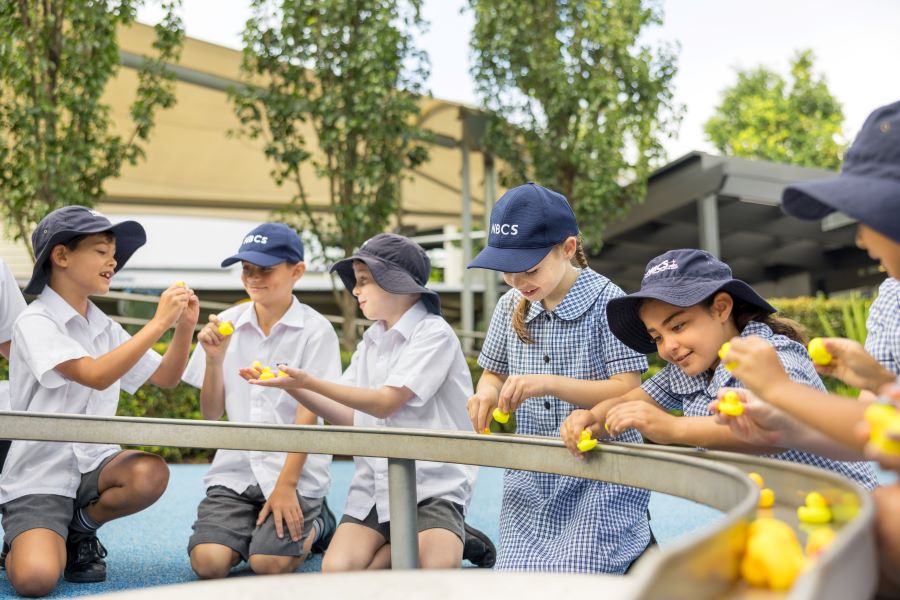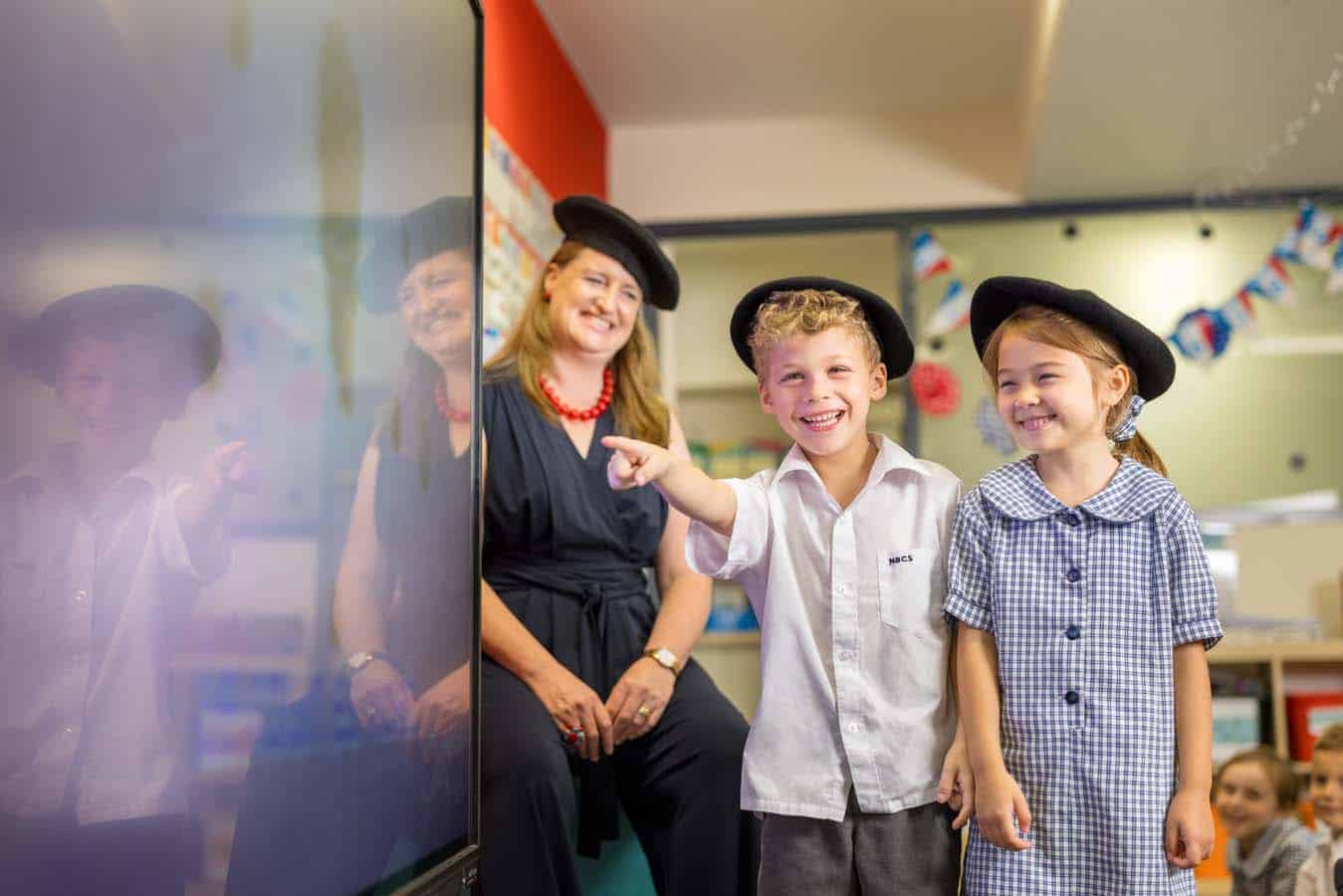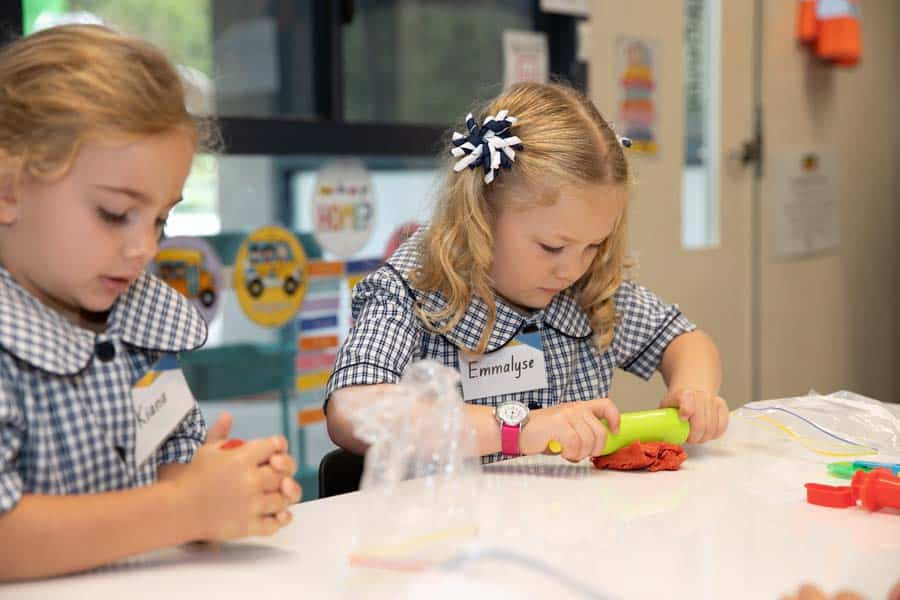As parents and educators, we all want our children to succeed in life. We want them to be happy, healthy, and fulfilled, and to reach their full potential. But to do that, they need to have a strong foundation of knowledge, skills and curiosity. In this article we’ll explore the importance of curiosity in learning.
Curiosity is a natural inclination that children have, some more than others. However, it is also a skill that can be nurtured and developed, and it is essential for success in any field.
Below, we explore the importance of curiosity in learning for Kindergarten and Primary school students. We look at how curiosity helps children learn, grow and develop, and why it is so important to foster this quality in our young learners.
The importance of curiosity in learning for Kindergarten and Primary school students
Curiosity boosts learning and retention
Children are naturally curious creatures, and their curiosity often leads them to explore and experiment with the world around them. When children are curious, they are more engaged and focused, which helps them learn and retain new information.
Studies have shown that when students are curious, they are more likely to remember what they have learned, and to apply that knowledge to new situations. This is because curiosity helps to stimulate the brain, creating new neural connections and strengthening existing ones.

Curiosity develops critical thinking skills
Curiosity also helps children develop critical thinking skills, which are essential for success in any field. When children are curious, they are more likely to ask questions, seek out answers, and evaluate information critically.
By encouraging children to ask questions and think critically, we help them develop problem-solving skills and the ability to analyse and evaluate information. These skills are essential for success in any field, from science and engineering to business and the arts.
Curiosity encourages creativity and innovation
Curiosity is also closely linked to creativity and innovation. When children are curious, they are more likely to explore new ideas and approaches, and to come up with innovative solutions to problems.
By encouraging children to be curious and explore new ideas, we help them develop their creativity and innovation skills. These skills are essential for success in any field, from the arts and sciences to business and entrepreneurship.
Curiosity fosters a love of learning
Finally, curiosity fosters a love of learning, which is essential for success in any field. When children are curious, they are more likely to enjoy learning, and to see it as a fun and exciting adventure.
By nurturing children’s curiosity, we help them develop a lifelong love of learning, which will serve them well throughout their lives. Whether they are pursuing a career in science, the arts, or business, a love of learning will help them stay engaged, motivated, and inspired.
How to foster curiosity in Kindergarten and Primary school students
Encourage exploration and experimentation
One of the best ways to foster curiosity in children is to encourage them to explore and experiment with the world around them. This could involve taking them on nature walks, letting them experiment with different materials or giving them open-ended projects to work on.
By giving children the freedom to explore and experiment we allow them to follow their natural inclinations, which helps to stimulate their curiosity and creativity. Encourage children to ask questions and to think critically about what they are seeing and experiencing. This can help them develop a deeper understanding of the world around them and develop critical thinking skills.

Provide opportunities to discover new interests
Another way to foster curiosity in children is to provide them with opportunities for discovery and learning at museums, science centres, or other educational venues where they can learn about a variety of topics.
When children have the opportunity to explore and learn about new things, they are more likely to become curious and engaged. Encourage children to ask questions and to seek out answers to things they are interested in. This can help them develop their research and problem-solving skills.
At Northern Beaches Christian School, our students have the chance to discover new interests, grow their God-given talents and develop confidence as lifelong learners through creative and performing arts, music, debating and public speaking, outdoor adventure, service, sport, media or technology. Our hope is that every child in our school will have an opportunity to develop or discover a new interest from the wide array of choices we offer.
Use creative teaching strategies
Teachers can foster curiosity in students by using creative teaching strategies such as hands-on activities, experiments, videos and group projects to help students learn about different topics.
At Northern Beaches Christian School our quality teaching programs encourage cooperation and independent enquiry, ensuring student engagement, focus, and meeting individual learning needs to grow a love of learning. We are intentional about basing our teaching on proven educational research and use a teaching model that includes a blend of explicit instruction and guided inquiry.

Encourage independent learning
Finally, encouraging independent learning through research and working on projects of interest can also foster curiosity in children.
By giving children the freedom to pursue their own interests and to explore topics on their own, we are helping them develop independence and critical thinking skills.
Curiosity in learning is critical in developing a love of learning
In conclusion, the importance of curiosity in learning for Kindergarten and Primary school students cannot be overstated. Curiosity helps children become engaged, focused, and motivated, which leads to better learning and retention.
By fostering curiosity in our young learners, we help them develop critical thinking skills, creativity and innovation, and a lifelong love of learning. As parents and educators, it is our responsibility to nurture this vital quality in our children, so they can reach their full potential and achieve success in whatever they choose to do.
Link: Learn more about how Northern Beaches Christian School fosters curiosity.

Summary of Key Points about the importance of curiosity in learning
- Curiosity is a skill that can be nurtured and developed, and it is essential for success in any field.
- Curiosity boosts learning and retention in Kindergarten and Primary school students.
- When students are curious, they are more likely to remember what they have learned and to apply that knowledge to new situations.
- Curiosity helps develop critical thinking skills in children, which are essential for success in any field.
- Curiosity encourages creativity and innovation in children, which are important skills for success in any field.
- Curiosity fosters a love of learning in children, which is essential for success in any field.
- Encouraging exploration and experimentation is a great way to foster curiosity in children.
- Providing opportunities for discovery and learning helps children become more curious and engaged.
- Using creative teaching strategies can help students become more engaged and interested in their learning.
- Encouraging independent learning can help to stimulate curiosity in children and encourage them to become lifelong learners.
- Fostering curiosity in young learners is essential for helping them reach their full potential and achieve success in whatever they choose to do.
FAQs about the role of curiosity in learning
Q: What are some ways to encourage curiosity in children?
A: Encouraging exploration and experimentation, providing opportunities for discovery and learning, using creative teaching strategies, and encouraging independent learning are all effective ways to foster curiosity in children.
Q: Why is curiosity important for learning?
A: Curiosity is important for learning because it helps to stimulate the brain, boost learning and retention, develop critical thinking skills, encourage creativity and innovation, and foster a love of learning.
Q: Can curiosity be taught?
A: Yes, curiosity can be taught. By providing children with opportunities to explore and experiment, encouraging them to ask questions and seek out answers, and using creative teaching strategies, we can help children develop their curiosity and become lifelong learners.
Q: How does curiosity help learning?
A: Curiosity helps learning because it stimulates the brain, boosts retention, develops critical thinking skills and encourages creativity and innovation, all of which lead to engagement with learning.
Q: Why curiosity is important for learning?
A: A child who is curious will explore and experiment, which creates opportunities for discovery and learning. When we provide children with opportunities to explore and experiment, encourage them to ask questions and seek out answers, and use creative teaching strategies, we can help children develop their curiosity and become lifelong learners.






